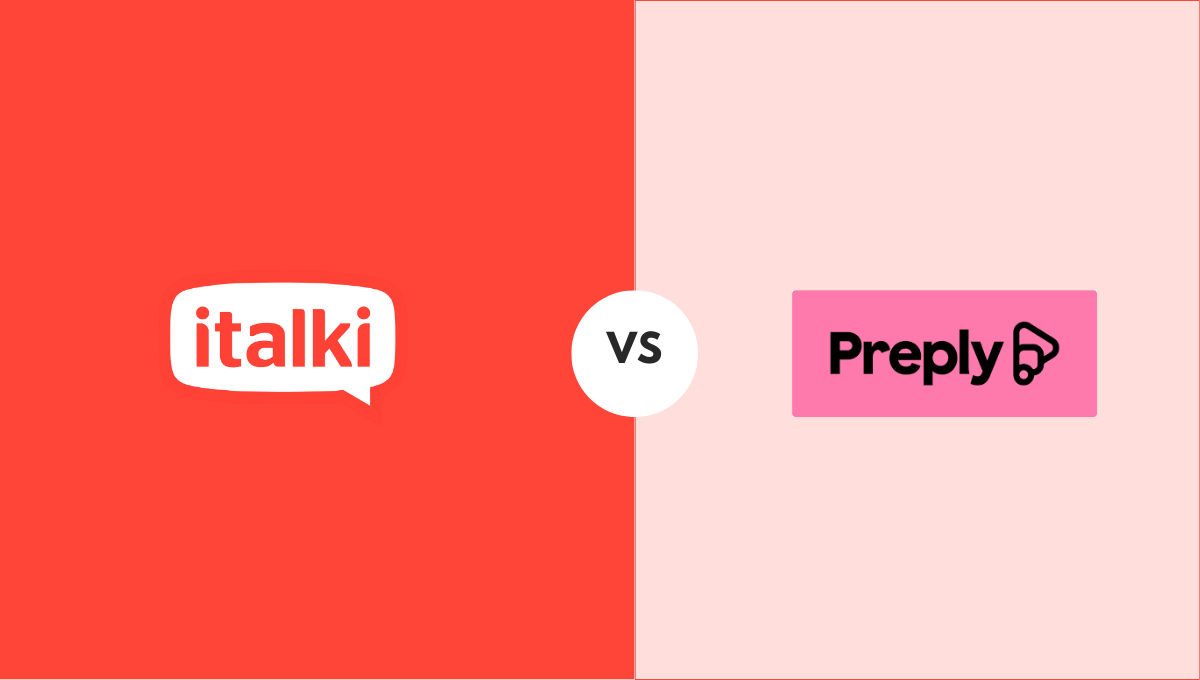When learning a new language, French and Spanish often top the list of choices for many people. Both languages are Romance languages derived from Latin, share many similarities, and are spoken widely worldwide. However, each language has unique features, cultural significance, and benefits.

This blog will examine the details of French and Spanish, comparing their grammar, pronunciation, vocabulary, cultural impact, and usefulness to help you decide which language to learn.
French vs. Spanish: Historical background, linguistics, cultural impact and global influence
Learners often inquire how long it takes to master French. The similarity of French with your native language plays a significant role. Plus, the time and effort you are willing to put in also matter.
Historical background
French and Spanish are part of the Romance language family, which evolved from Vulgar Latin spoken by the common people in the Roman Empire. However, their development took different paths influenced by historical, political, and cultural factors.
French, the official language of France, Belgium, Switzerland, and several African countries, has evolved from the Gallo-Romance dialects spoken in northern France. The influence of the Frankish language (a Germanic language spoken by the Franks) and the standardization efforts by the French monarchy played significant roles in shaping modern French. You can also look at different French-speaking countries individually to understand their historical perspectives.
Spanish, on the other hand, originated from the Castilian dialect spoken in the Kingdom of Castile. It spread across the Iberian Peninsula and later to the Americas and other parts of the world due to Spain’s colonial expansion. Today, Spanish is the official language of Spain and most Latin American countries, making it one of the most widely spoken languages globally.
Grammar
Verb conjugation
Both French and Spanish have complex verb conjugation systems, but there are notable differences. Spanish verbs are generally more regular, with three main conjugation patterns (-ar, -er, -ir). French verbs, while falling into three categories (-er, -ir, -re), have many irregular verbs, making them more challenging for learners.
For example, the verb “to be” in Spanish is “ser” or “estar,” depending on the context, and it conjugates as “soy, eres, es, somos, sois, son” in the present tense. In French, the verb “être” conjugates as “je suis, tu es, il/elle est, nous sommes, vous êtes, ils/elles sont.”

Noun gender and agreement
Both languages assign gender to nouns and require adjectives to agree on gender and number. In Spanish, nouns ending in -o are typically masculine, while those ending in -a are feminine. In French, nouns ending in -e are often feminine, but there are many exceptions.
For example, the word “book” is “libro” (masculine) in Spanish and “livre” (masculine) in French. The word “house” is “casa” (feminine) in Spanish and “maison” (feminine) in French.
Pronouns
Spanish uses subject pronouns more frequently than French due to its verb conjugations, which make the subject clear. French tends to omit subject pronouns in informal speech but retains them in writing.
For example, “I speak” is “yo hablo” in Spanish, where “yo” is often omitted in spoken language. In French, it is “je parle,” where “je” is usually retained even in speech.
Pronunciation
Vowels and consonants
Spanish pronunciation is generally more straightforward than French. Spanish has five vowel sounds (a, e, i, o, u) that are consistently pronounced. French has a more complex vowel system, including nasal vowels and many diphthongs, making pronunciation more challenging.
For instance, the Spanish word “amor” (love) is pronounced as it is written, with each vowel having a distinct sound. The French equivalent “amour” has a nasal vowel, represented by the ‘ou’ sound.
Silent letters
French has many silent letters, especially at the ends of words, which can be difficult for learners. Spanish pronunciation is more phonetic, with fewer silent letters.
For example, the French word “parler” (to speak) has a silent ‘r’ at the end, while the Spanish word “hablar” is pronounced with all letters articulated.
Stress and intonation
Spanish has predictable stress patterns, usually on the penultimate syllable, unless indicated by an accent mark. French stress is more uniform, typically falling on the last syllable of a phrase or word.
For example, the word “telefono” (telephone) in Spanish has stress on the second-to-last syllable. In French, “téléphone” has stress on the final syllable of the word.
Vocabulary
While French and Spanish share many cognates due to their Latin roots, there are notable differences in vocabulary.
False friends
Cognates can be misleading, known as false friends, where words look similar but have different meanings. For example, the Spanish word “embarazada” means “pregnant,” not “embarrassed.” In French, “sensible” means “sensitive,” not “sensible.”
Loanwords
Both languages have borrowed words from other languages. French has many English loanwords, especially in technology and culture (e.g., “le weekend,” “le parking”). Spanish has numerous Arabic loanwords due to the Moorish influence in Spain (e.g., “algodón” for cotton, “algebra” for algebra).
Cultural impact
Literature and arts
French literature has a rich history with notable authors like Victor Hugo, Marcel Proust, and Albert Camus. French cinema is also globally influential, with the New Wave movement revolutionizing film.
Spanish literature boasts famous writers such as Miguel de Cervantes, Gabriel García Márquez, and Pablo Neruda. The Spanish-speaking world also has a vibrant film industry, with directors like Pedro Almodóvar gaining international acclaim.
Cuisine
French cuisine is renowned for its sophistication and variety, with dishes like coq au vin, croissants, and crème brûlée. Spanish cuisine is known for its bold flavors and regional diversity, with dishes like paella, tapas, and gazpacho.

Festivals
France is known for its numerous festivals, such as Bastille Day, Cannes Film Festival, and Fête de la Musique. Spanish-speaking countries celebrate events like La Tomatina, Day of the Dead, and Carnival with great fervor.
Usefulness and global influence
Number of Speakers
Spanish is the second most spoken language in the world by native speakers, with over 460 million speakers. It is the official language in 21 countries and a key language in international organizations.
While not as widely spoken as Spanish, French is still a major global language with about 80 million native speakers and 220 million total speakers. It is an official language in 29 countries and widely used in diplomacy, including as one of the official languages of the United Nations.
Business and Travel
Spanish is incredibly useful for business and travel in Latin America, the United States, and Spain. Many multinational companies value Spanish-speaking employees due to the significant Spanish-speaking market.
French is crucial in international business, particularly in Africa, Europe, and Canada. It is also beneficial for travelers exploring Europe, Africa, and parts of the Caribbean.
Learning Difficulty
The difficulty of learning a language is subjective and depends on the learner’s native language and personal affinity. Generally, Spanish is considered easier for English speakers due to its relatively straightforward pronunciation and spelling rules. French, with its complex pronunciation and numerous exceptions in grammar, might be more challenging.
If you’re planning to work in France, it’s essential to understand the French work culture to make your transition as smooth as possible. You also need to master French to open the gate of endless opportunities.
Looking for an authentic language-learning medium? Well! We have a recommendation for you. Explore italki to get the most experienced and highly professional French tutor online.
Learning the French language with italki
This fantastic platform is ideal for those who want to learn French online at a gradual pace. italki makes learning a new language simple and well-organized. Let’s explore some of italki’s most noticeable features to understand the learning practices better.
Incredible French tutors: At italki, you can find the best tutors offering online French lessons. All of the instructors are certified educators with many years of experience. Learning the language is essential if you want to interact with them because most are native speakers.

Find Your Perfect Teacher
At italki, you can find your French tutor from all qualified and experienced teachers. Now experience the excellent language learning journey!
Book a trial lesson
Schedule flexibility: This online platform is well-known for allowing students to create their own schedules. You can make your schedule, but remember to stick to it.
Conversational learning practices: italki’s main strengths are French conversational tutors. You can discuss your learning objectives and needs with your tutor, who will guide you through the process and make French learning easier.

The enrollment process at italki
- Visit italki.
- Generate your profile.
- Enter information about your preferred learning style, schedule, and mode.
- Look for French tutors: Go to the ‘Find a Teacher’ section and search for French tutors. Review their profiles, including their experience, reviews, teaching styles, etc.
- Select your preferred tutor. You can book a trial session at a discounted price to experience the quality of their learning sessions.
- Establish your learning objectives in consultation with your tutor. Schedule regular lessons and adhere to them with zeal.
- Participate in conversational sessions and read the instructor-provided material to improve your language skills.
- Listen to the instructor’s feedback and keep track of your learning progress.
Frequently asked questions
Which language is easier to learn for English speakers, French or Spanish?
Generally, Spanish is considered easier for English speakers due to its more straightforward pronunciation and spelling rules. Spanish words are pronounced as they are written, and the complex grammar is more regular than French. French has more silent letters, irregular verbs, and a complex vowel system, which can make it more challenging.
How do the verb conjugations in French and Spanish compare?
Both languages have complex verb conjugation systems, but Spanish verbs are generally more regular. Spanish verbs are grouped into three conjugations (-ar, -er, -ir), with predictable patterns. French verbs also fall into three categories (-er, -ir, -re), but there are many more irregular verbs and exceptions to the rules.
Which language is more useful for travel and business?
The usefulness of French or Spanish depends on your travel and business goals. Spanish is extremely useful in Latin America, Spain, and the United States. Due to the large Spanish-speaking market, it is also important in international business. French is valuable in Europe, Africa, and Canada and is a key language in international diplomacy and organizations like the United Nations.
Are there significant differences in pronunciation between French and Spanish?
There are significant differences. Spanish pronunciation is more phonetic, with five vowel sounds that are consistently pronounced. French pronunciation is more complex, with many silent letters, nasal vowels, and diphthongs. This makes Spanish generally easier to pronounce for beginners.
Conclusion
Choosing between French and Spanish depends on your goals, interests, and the regions you wish to connect with. Both languages offer rich cultural experiences, valuable communication skills, and numerous benefits.
If you’re drawn to the elegance of French culture, literature, and global diplomacy, French might be the better choice. If you’re interested in the vibrant cultures of Latin America, Spain, and the United States, or if you seek a language with a more phonetic pronunciation, Spanish could be the right fit.
Explore italki to learn your desired language online. The native tutors at italki will help you achieve fluency quickly. Visit the website today for further details.
Want to learn a language at italki?
Here are the best resources for you!

















